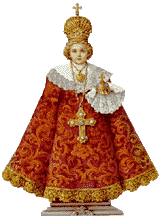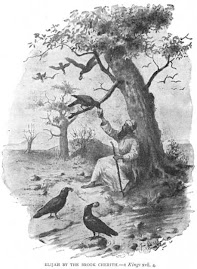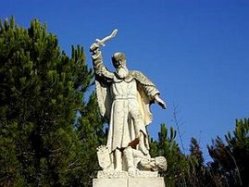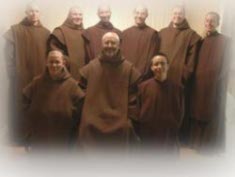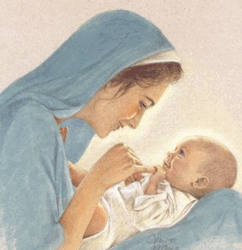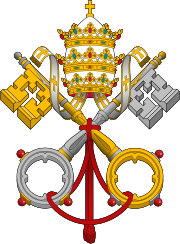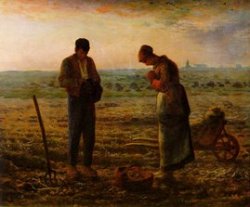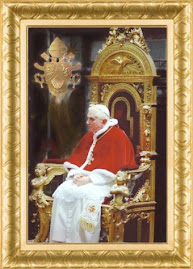Mary had learned to listen to God's word. By her side, John in turn learned to listen and hear. As music finds no better echo than in silence, the words of Jesus resonate the best in quiet hearts.The quietest heart of all, that of the Virgin, gathered and meditated all of them. This is why all John needed to do was to live near her so that his disciple's soul gradually opened up to the interior opportunity of receiving and « hearing » everything that the divine words held.
Thanks to Mary, John’s knowledge of Christ also increased. Mary, who had forgotten nothing of Christ’s childhood, his familiar gestures, his way of being, had kept everything in her heart.
These memories illuminated a specifically human personality, at least in appearance, for « a man is always a child for his mother. » Jesus, whilst being God, did not wish to escape this law. He wanted to owe his weakness and his fragility as a man, to a woman and a mother. Who better than Mary could testify?
And yet, such was her testimony and such was she herself, that these human traits which could have discouraged John's faith in the divinity and form an insurmountable ordeal, were instead a source of enrichment and strength. The deeply human facts that he learned from Mary rooted him in his faith in Jesus Christ, the Son of God, and the Incarnation eventually became for him, through Mary, a totally positive reality.
In the privileges of her motherhood, as much as in the sufferings that it occasioned, Mary was so often presented with the « inner side » of things...and she never ceased to go beyond mere appearances in order to reach the divine message and the deeper meaning of God. She lived this to such an extent that she was found worthy, at the foot of the Cross, to become their depository custodian and dispenser.
There is no doubt that John profited from this treasure and that he was the first to have this privilege.
(Fr. Paul Marie de la Croix, OCD -The Gospel and its Spiritual Testimony)
Text after 'A Moment with Mary'
Picture of Our Lady with the Child taken at the Museum of Art in Washington.
Read whole post......



